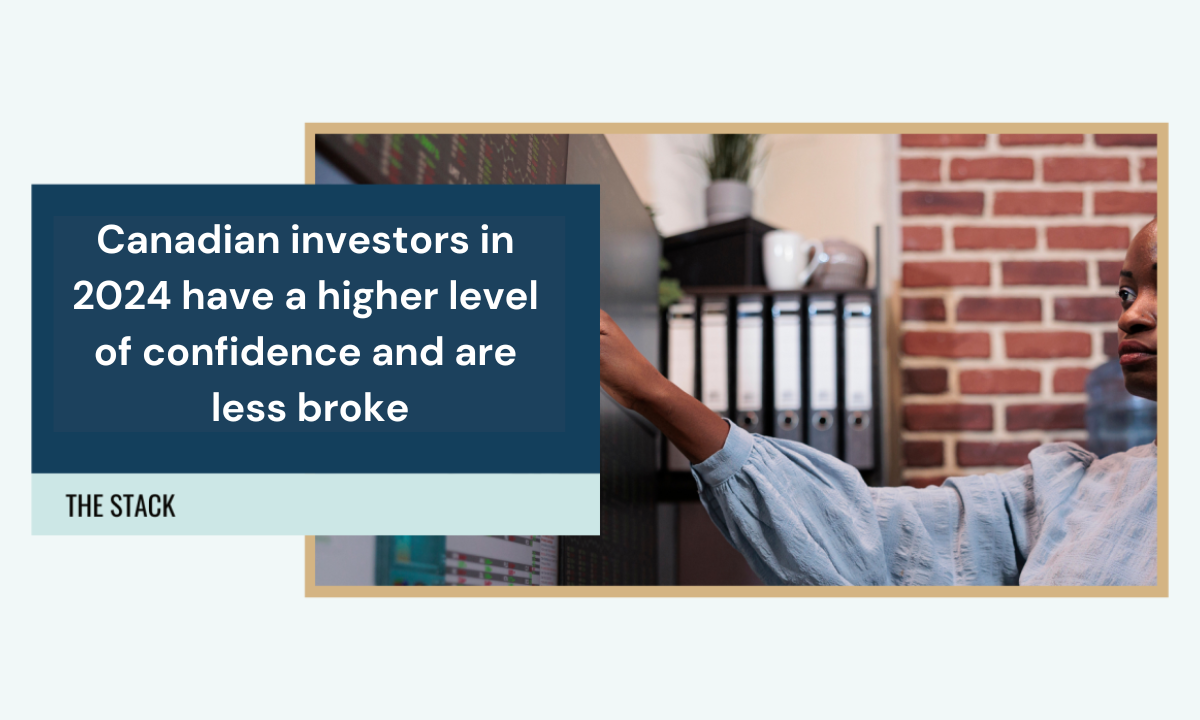Canadians are more confident this year about various investment options, despite economic conditions that have led to fewer people holding investments.
Canadians’ investment preferences have been uncovered by Pollara for IFIC. A sense of portfolio changes is given, cryptocurrency is growing in popularity, inflation is being stressed (yet again) and investors who lean toward mutual funds differ sharply from those who favor ETFs.A long-term perspective is also provided by 18 previous years of analysis.
Here are the highlights.
Investments dropped among Canadians
Canadians hold investments in 64 percent of cases, a decrease from last year’s 67 percent.
An economic downturn may have made people less able to save for the future, Ian Bragg, IFIC’s vice president of research and statistics, said during a media call.
Pollara senior vice president Lesli Martin said new investors, such as young people who are just starting, have less disposable income. Perhaps holding investments has declined, since these people are the ones who are affected the most.”
But investor confidence is high
Confidence that investments would meet financial goals revived in 2023 and 2024 after dropping in 2022. Seventy percent of investors this year have confidence in stocks, bonds, and mutual funds.
Mutual fund investors, particularly, lost confidence in 2022, and this was true for mutual funds across the board,” Martin said. Any investment product had a drop in confidence. This bounced back in 2023, we had a bit of a rebound, and we saw even stronger confidence this year, so that feeling of distrust lasted very little time.”
Investments in mutual funds remain popular
Among Canadians with investments, 61% have mutual funds, down from 64% in 2023. From 49 percent to 47 percent, stocks were owned by fewer people. ETFs are held by 24 percent of investors.
The percentage of cryptocurrency owners increased to 18% from 14 percentage points in 2023.
Canadian investors own 73 per cent of mutual funds and ETFs (48 per cent have mutual funds alone, 9 per cent have ETFs alone, and 16 percent have both). Many ETF investors own mutual funds as well. Few mutual fund investors own ETFs.
ETF and mutual fund investors’ confidence
Ninety-two percent of investors are confident that mutual funds will meet their financial goals. Stocks and GICs have “some confidence” but mutual funds have “much more confidence” than anything else, Martin said.
ETF investors, on the other hand, appear more optimistic about most investment types. Most ETF investors are confident about every investment type except mutual funds and 88 percent of them are confident about mutual funds themselves.
ETF investors are more confident in ETFs and digital assets. The overall confidence of ETF investors is 94% (compared to 58%). Digital assets are more confidently held by ETF investors than mutual fund investors.
ETF investors are more likely to go it alone
“Most mutual fund purchases are influenced by advice,” the report notes, while ETF purchases are generally made without it.
Most mutual fund investors purchase all their investments without advice; 41 percent of ETF investors do the same. Investing in ETFs tends to be more popular with younger, male investors with smaller portfolios who believe they are knowledgeable.
“Even younger mutual fund investors rely more on their advisor,” Martin said. Investors, regardless of age, seem to be more inclined to talk to their advisors and follow their advice.
Investors who use financial advisors are over 90% satisfied with their advice.
The average ETF investor invests on their own occasionally and regularly whereas 41% of mutual fund investors do so occasionally and 16 % do so regularly. Additionally, ETF investors are more likely to have purchased cryptocurrencies online.



